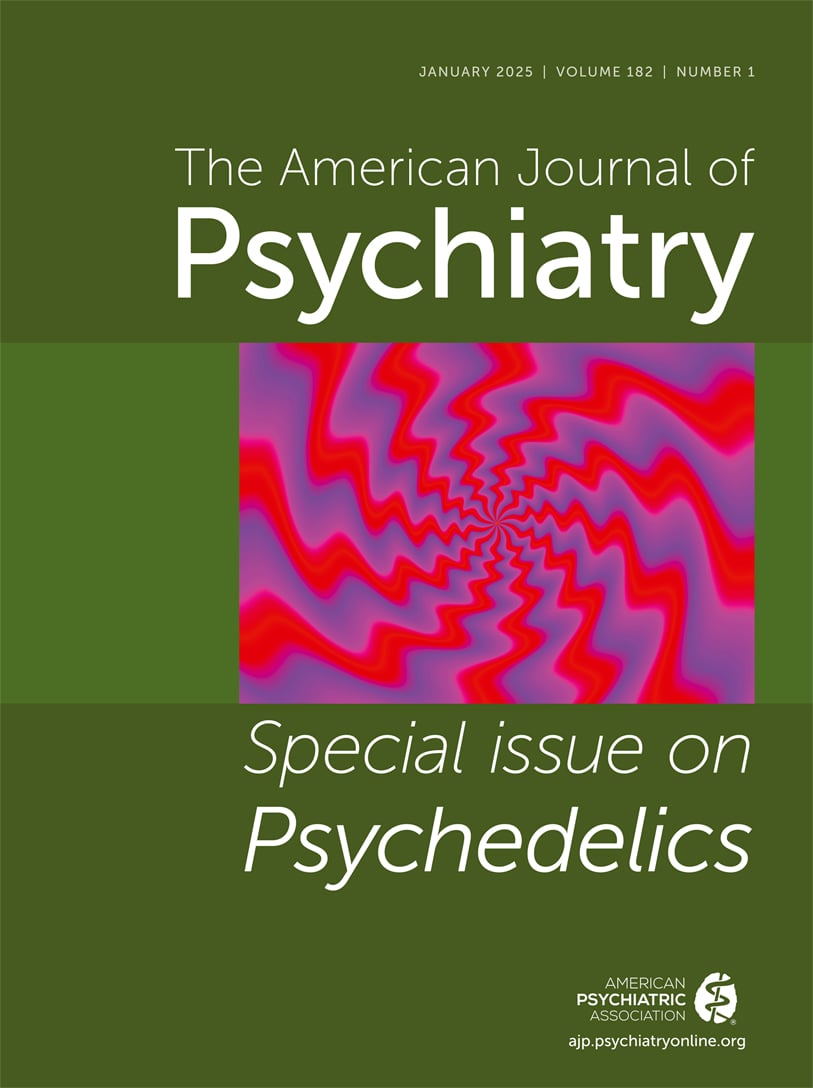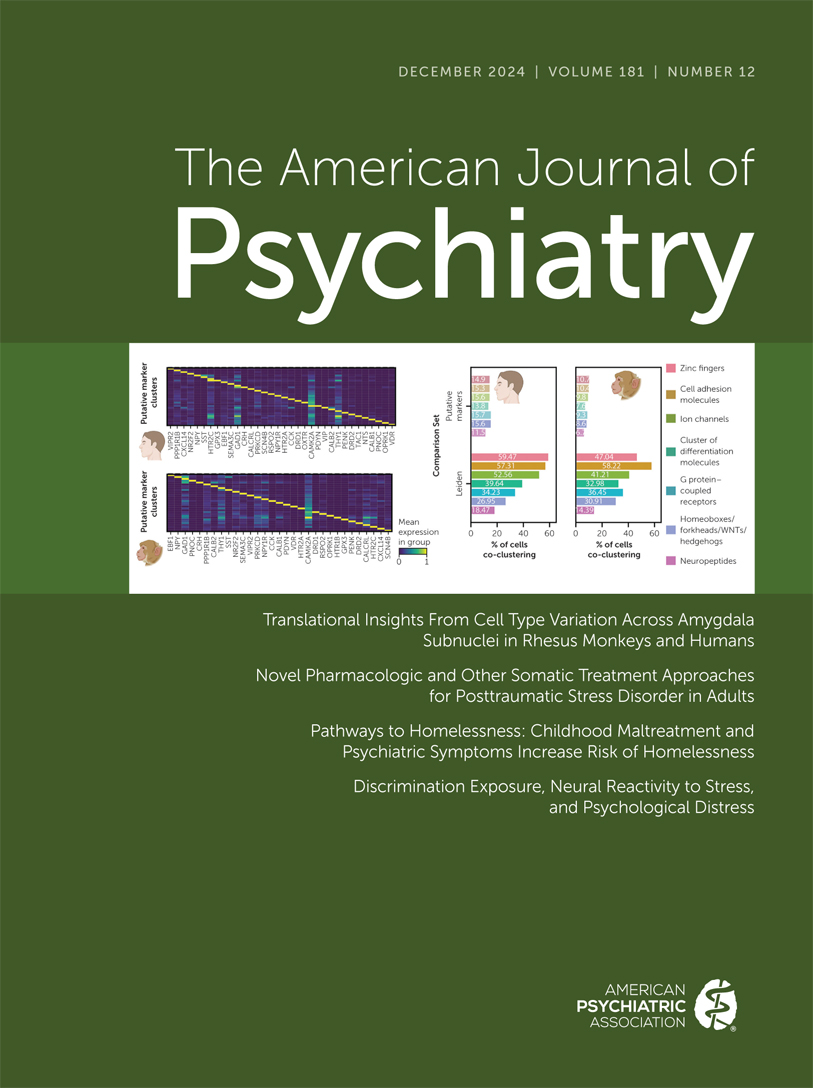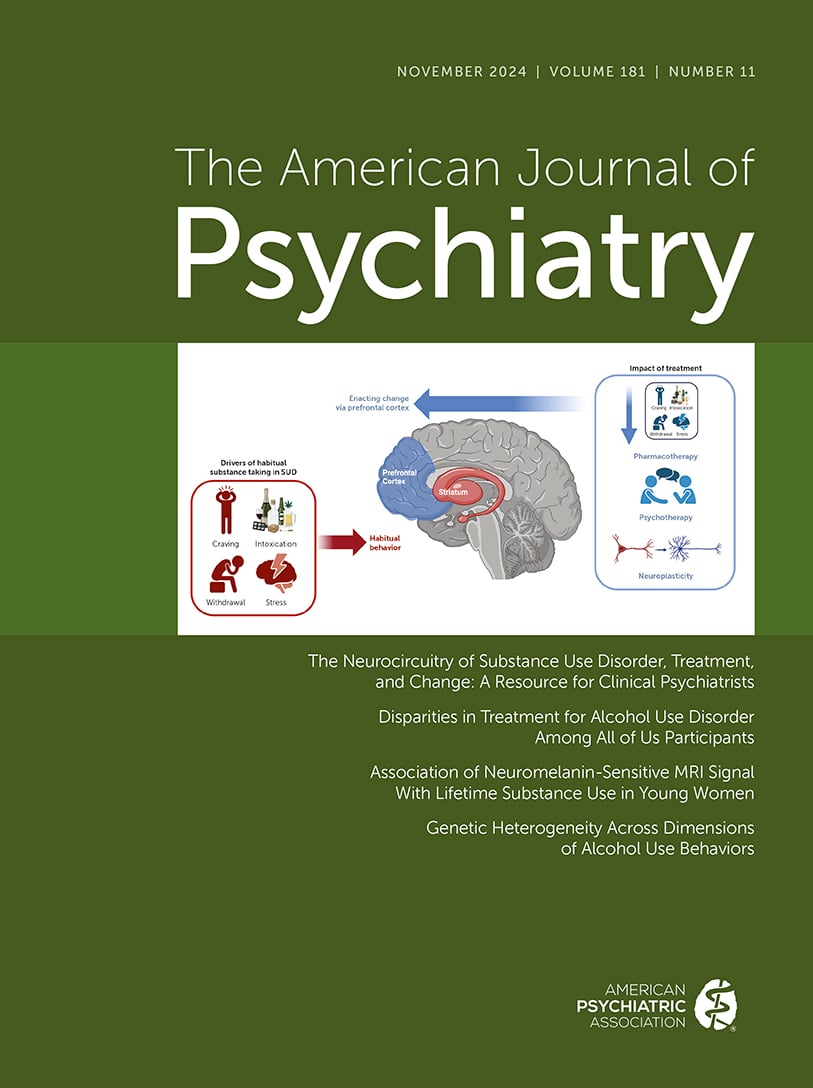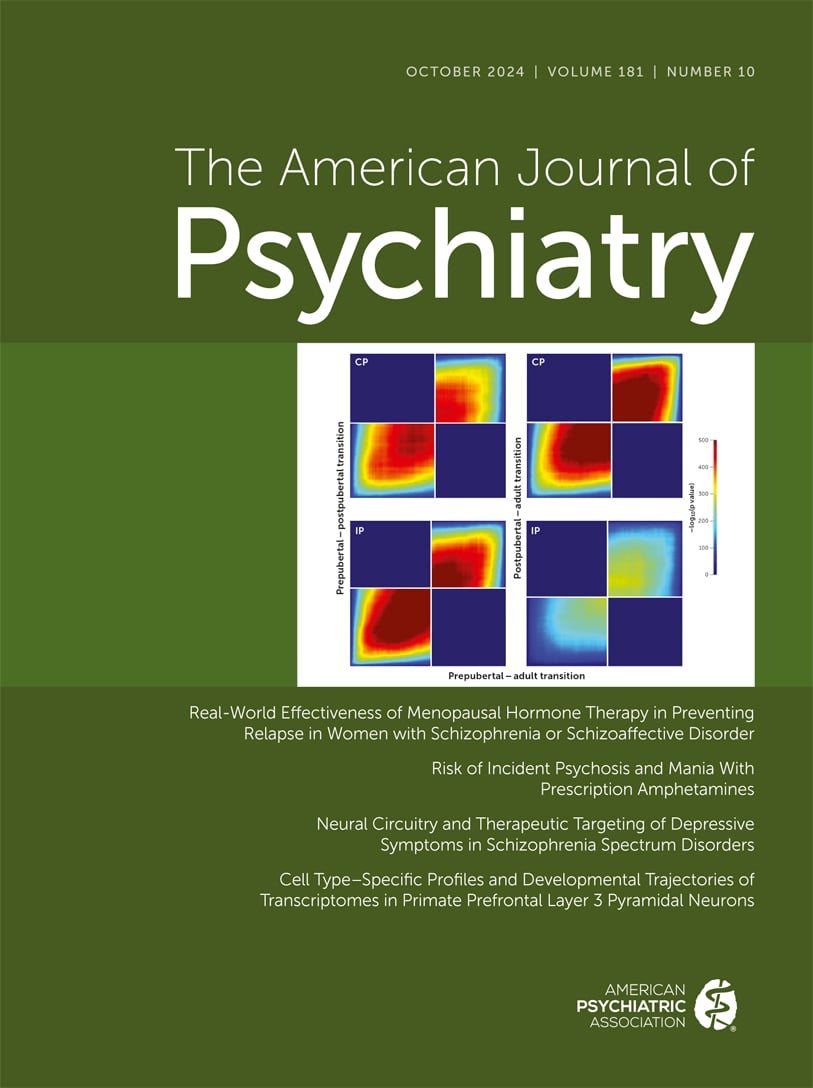American Journal of Psychiatry
- Volume 125
- Number 11
- May 1969
Article
Publication date: 01 May 1969
Pages1485–1490The authors studied the reactions of patients provided with renal homotransplantations and their families. Usually when the family learned of the imminent death of one of its members, one or more relatives offered to donate a kidney. The family then gave ...
https://doi.org/10.1176/ajp.125.11.1485Publication date: 01 May 1969
Pages1491–1500This review of recent research suggests the existence of an unstable state of central nervous system hyperexcitability in depression, and possibly in mania, with an associated but disorganized intrinsic hyperactivity. The authors propose this concept as a ...
https://doi.org/10.1176/ajp.125.11.1491Publication date: 01 May 1969
Pages1501–1507Knowledge about groups and the behavior of individuals within them is of increasing importance in the training of psychiatric residents and other mental health professionals. The department of psychiatry at Yale University School of Medicine has ...
https://doi.org/10.1176/ajp.125.11.1501Publication date: 01 May 1969
Pages1508–1519Teaching sexual psychology to medical students must take into consideration their high degree of anxiety and conflict, common obsessive compulsive personality structure, lack of factual knowledge, and lack of awareness of the social class influences on ...
https://doi.org/10.1176/ajp.125.11.1508Publication date: 01 May 1969
Pages1520–1530According to a survey by the author, the great majority of college mental health services do not routinely inform parents of consultations, evaluations, or short-term treatment, although they do notify parents of serious illness, suicidal attempts, or ...
https://doi.org/10.1176/ajp.125.11.1520Publication date: 01 May 1969
Pages1531–1536Chimpanzees reared during early life in environments with social and perceptual restrictions are strikingly different from animals reared by their mothers in a natural habitat. As adolescents they avoid social contact and display little species-typical ...
https://doi.org/10.1176/ajp.125.11.1531Publication date: 01 May 1969
Pages1537–1543Distinguishing clearly between civil disobedience and civil disorder, which are sometimes confused in the minds of both the participants and the public, the author focuses on the dynamics of the latter. Using the model of adolescent rebellion as an aid to ...
https://doi.org/10.1176/ajp.125.11.1537Publication date: 01 May 1969
Pages1543–1551The walk-in mental health clinic described here provided brief, supportive treatment for participants in the Poor People's Campaign who were referred by the general medical staff or sought such help on their own. Although the mental health team members ...
https://doi.org/10.1176/ajp.125.11.1543Publication date: 01 May 1969
Pages1552–1557Primitive thinking patterns reinforced by group membership underlie the false beliefs which are central in the psychodynamics of racial conflicts in the United States. The destructive alteration of Negroes to fit false beliefs about them has tended to ...
https://doi.org/10.1176/ajp.125.11.1552Publication date: 01 May 1969
Pages1557–1563Current approaches to the problem of ensuring civil rights for all have failed to reach the root of the matter, this author suggests, because they do not take into consideration the real and imagined social and economic threats that are important factors ...
https://doi.org/10.1176/ajp.125.11.1557Publication date: 01 May 1969
Pages1564–1575After describing the atrocious crimes characteristic of the period known as La Violencia in Colombia, the author presents a formulation about the psychological factors that may have contributed to their commission. The early background of the bandolero ...
https://doi.org/10.1176/ajp.125.11.1564Publication date: 01 May 1969
Pages1576–1580With the popularization of the psychotropic drugs, the author observes, a peculiar aberration has entered into public thinking: everyone nowadays expects to be happy. Pills have come to be regarded as a means to do away with the everyday anxieties and ...
https://doi.org/10.1176/ajp.125.11.1576Publication date: 01 May 1969
Pages1585–1590The author describes the techniques of an operant conditioning treatment program for psychotic children that has both curative and palliative objectives. He outlines several major implications of the work for the understanding of these children. Of ...
https://doi.org/10.1176/ajp.125.11.1585Publication date: 01 May 1969
Pages1590–1593Stimulated by their observation of a patient who persistently attempted suicide, the authors conducted a survey to determine the incidence of similar behavior among other hospitalized psychiatric patients. Reports from 53 hospitals indicated that highly ...
https://doi.org/10.1176/ajp.125.11.1590Publication date: 01 May 1969
Pages1594–1599The authors discuss the management of globally hostile students who have the means to carry out their threats through the use of firearms. Three such students and their treatment are described. Management of the patients emphasized recognition, ...
https://doi.org/10.1176/ajp.125.11.1594Publication date: 01 May 1969
Pages1600–1602The author compared the antimuscarinic effects on pigeon behavior of amitriptyline, imipramine, and desmethylimipramine (DMI), as well as several other drugs. The results, which did not support the hypothesis that discrete cholinergic mechanisms play an ...
https://doi.org/10.1176/ajp.125.11.1600Publication date: 01 May 1969
Pages1610-a–1610In the February issue the article titled "The Enduring Effect of the Jewish Tradition Upon Freud" by Lary R. Berkower, M.D., contains an error. A line was dropped at the end of the third paragraph on page 1067. The last sentence should read "It is true ...
https://doi.org/10.1176/ajp.125.11.1610-aPast Issues
View Issues Archive
Vol. 182 | No. 1

Vol. 181 | No. 12

Vol. 181 | No. 11
